Can a saline tattoo removal trigger autoimmune disease?
Saline tattoo removal is a popular and natural way to get rid of unwanted tattoos, a safer alternative to more aggressive tattoo removal methods. Saline removal stands out because of its effectiveness and it works on all skin types. But there are questions about its health impact, can it trigger autoimmune diseases? This article will get into the science of saline tattoo removal, the healing process, risks and its effect on people with pre existing conditions like autoimmune disorders.
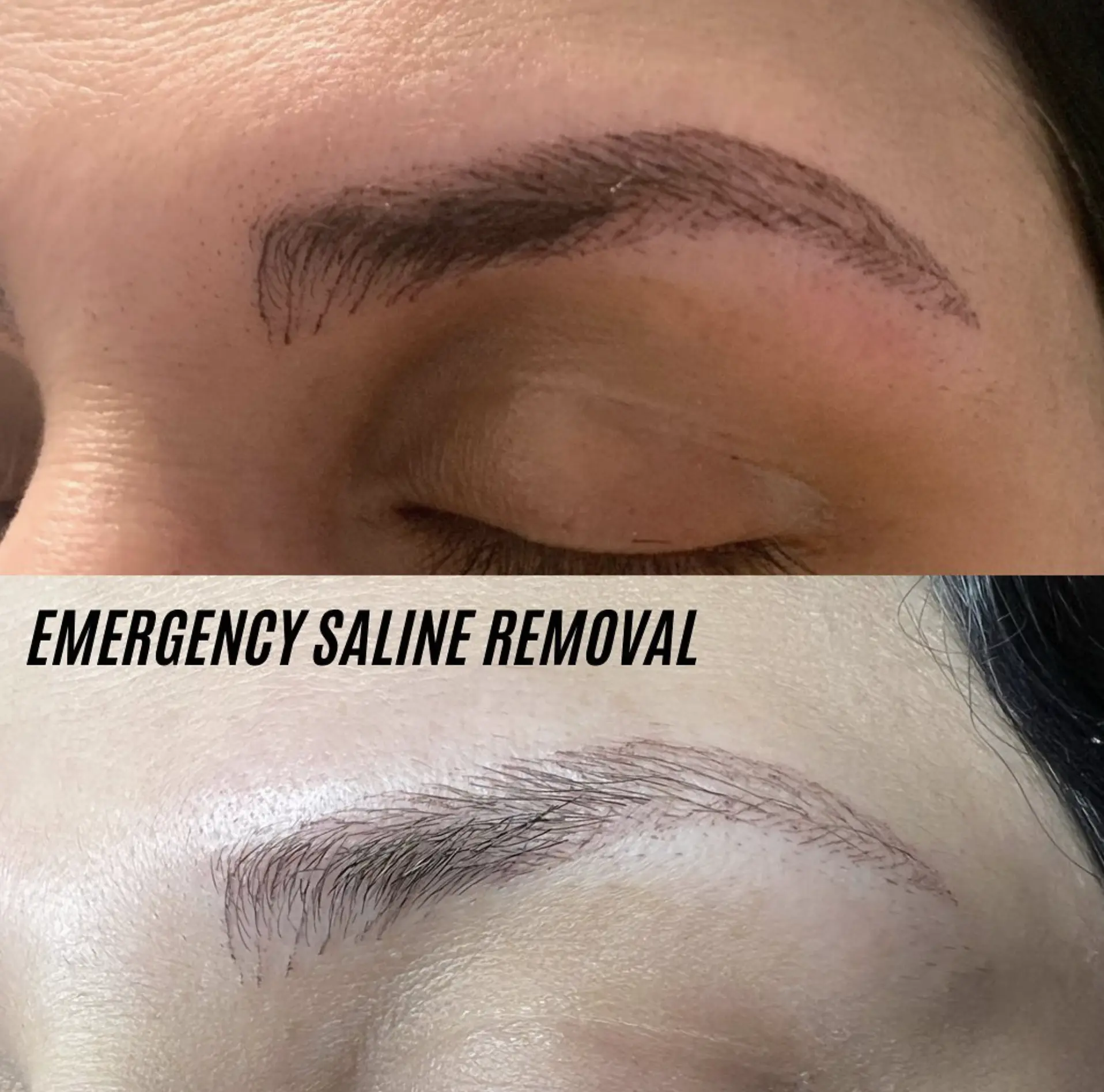
Saline Tattoo Removal Work
Saline tattoo removal is a non laser method of lightening or removing tattoos, including cosmetic tattoos like eyebrow tattoos and medical tattoos. Unlike traditional tattoo laser removal Melbourne clinics offer, saline removal uses a saline solution that interacts with the ink, lifts the unwanted pigment to the surface. This ancient practice is known for its compatibility with darker skin tones, that’s why many are looking for tattoo removal near me services.
Saline tattoo removal involves injecting a saline solution into the skin, where it interacts with the tattoo ink particles. The solution lifts the ink to the surface, creates a scab that eventually falls off, taking the ink with it. Unlike laser removal, saline removal is suitable for all skin tones and ink colors, that’s why it’s a versatile option.
When comparing laser tattoo removal cost vs saline removal, saline removal is often seen as a more affordable and accessible option, especially for smaller tattoos or delicate areas like the face. Saline tattoo removal is a natural option for those who are hesitant about laser tattoo removal.
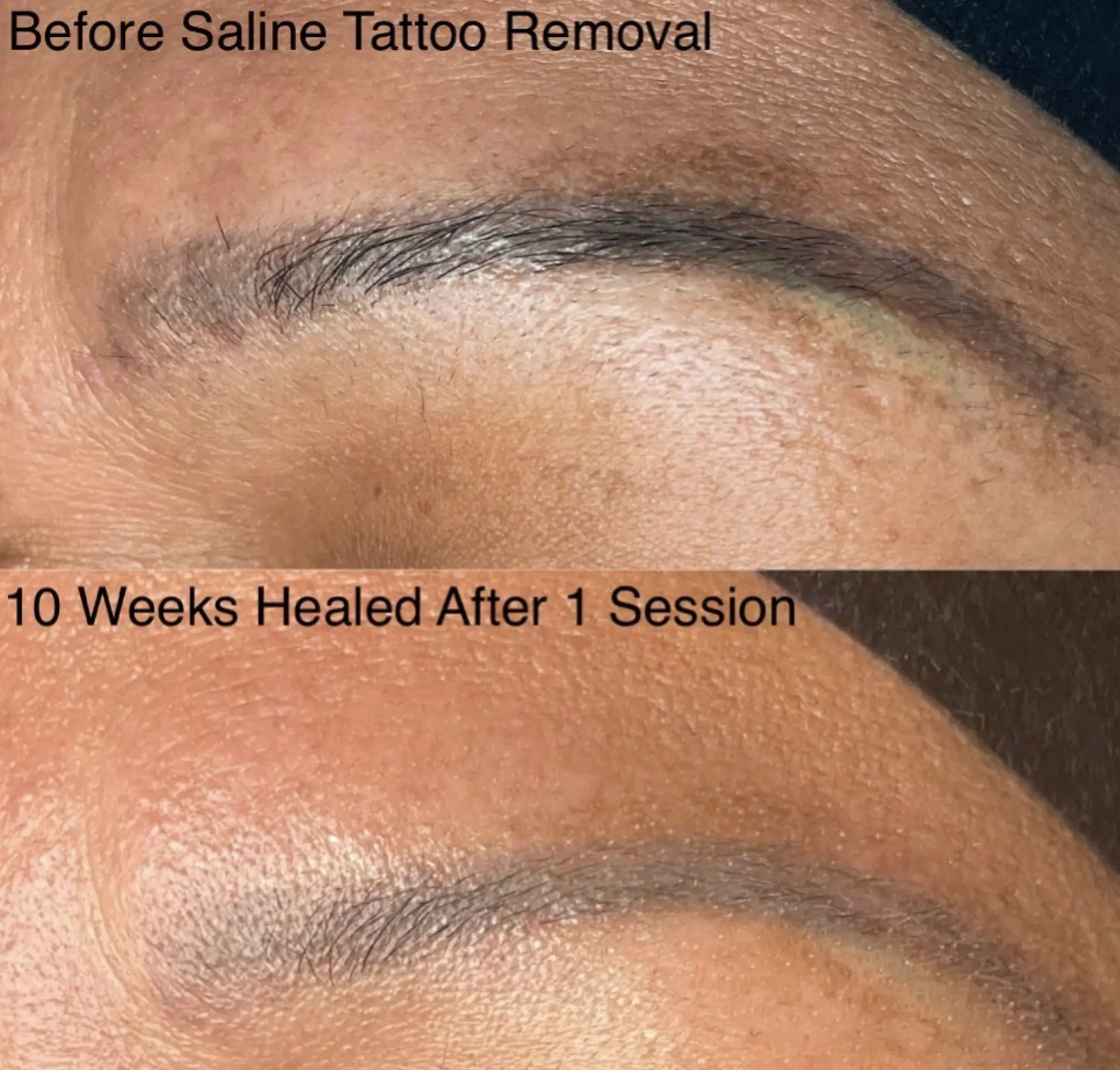
How Autoimmune Diseases Work
Autoimmune diseases are when the immune system attacks healthy tissues, resulting to conditions like lupus, rheumatoid arthritis and psoriasis. Chronic illnesses, environmental factors and adverse reactions – like those caused by decorative tattoos or certain tattoo removal methods – can sometimes trigger symptoms.
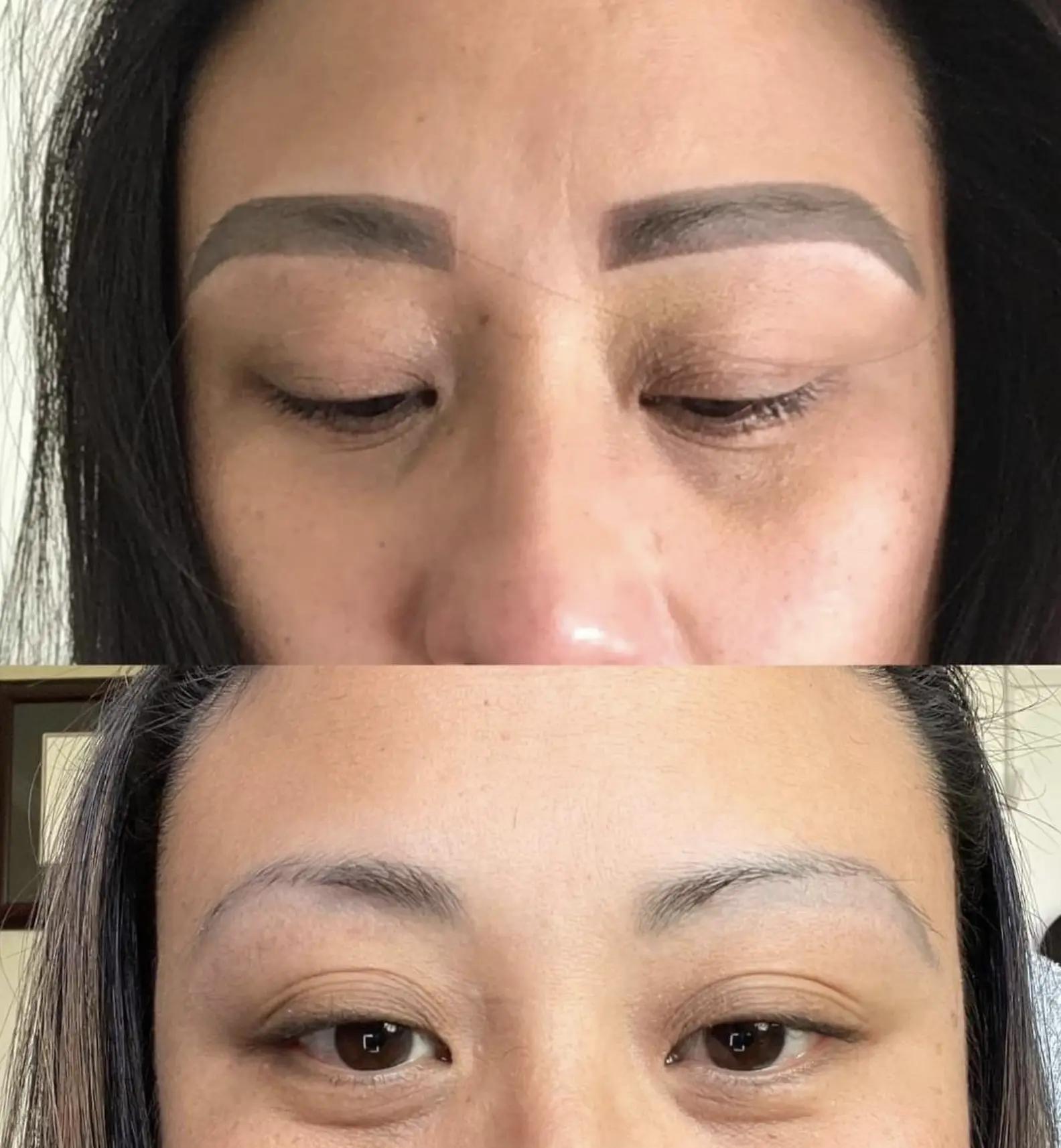
Saline Removal Cause Autoimmune Disease?
There is no scientific evidence to link saline removal to autoimmune diseases. But any procedure that involves skin puncture or trauma can trigger the immune system. Here’s why:
- Immune Response to Injury
Saline tattoo removal involves minor skin injuries which activates the body’s immune response to repair the tissue. - Inflammation and Healing
Healing involves inflammation, a part of the immune system activation. While this is normal and temporary, people with pre-existing autoimmune conditions may experience a flare up. - Pre-existing Conditions
People with pre-existing autoimmune conditions may experience changes in their immune system after a procedure although this is rare and temporary.
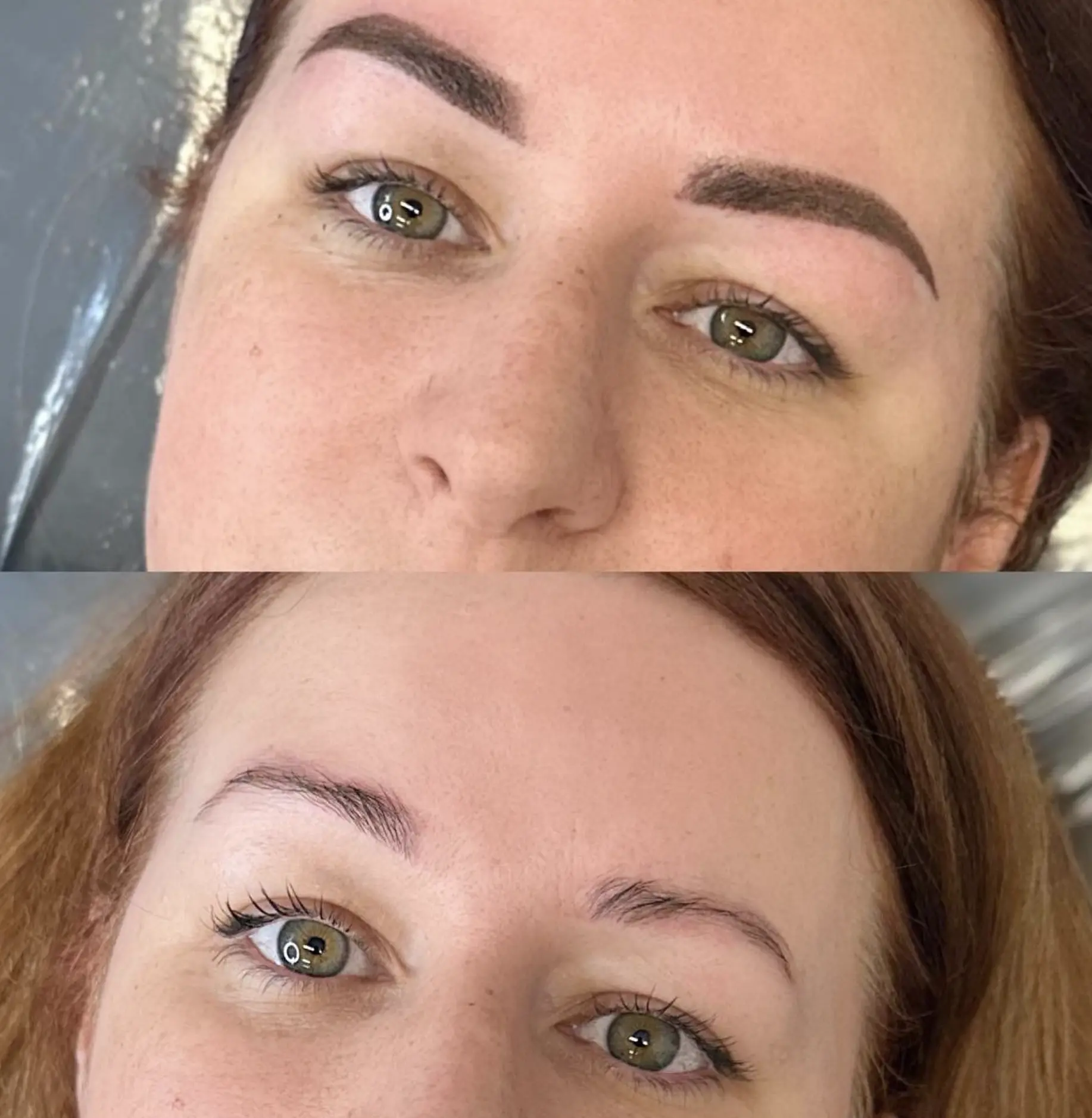
Factors to Consider
While the risk of triggering an autoimmune disease is very low, the following may affect the outcome:
- Personal Medical History: People with family history of autoimmune diseases may be more cautious.
- Allergic Reactions: Some people may react to the saline solution or tools used during the procedure.
- Immune System Stress: Those recovering from other illnesses or surgeries may want to delay tattoo removal.
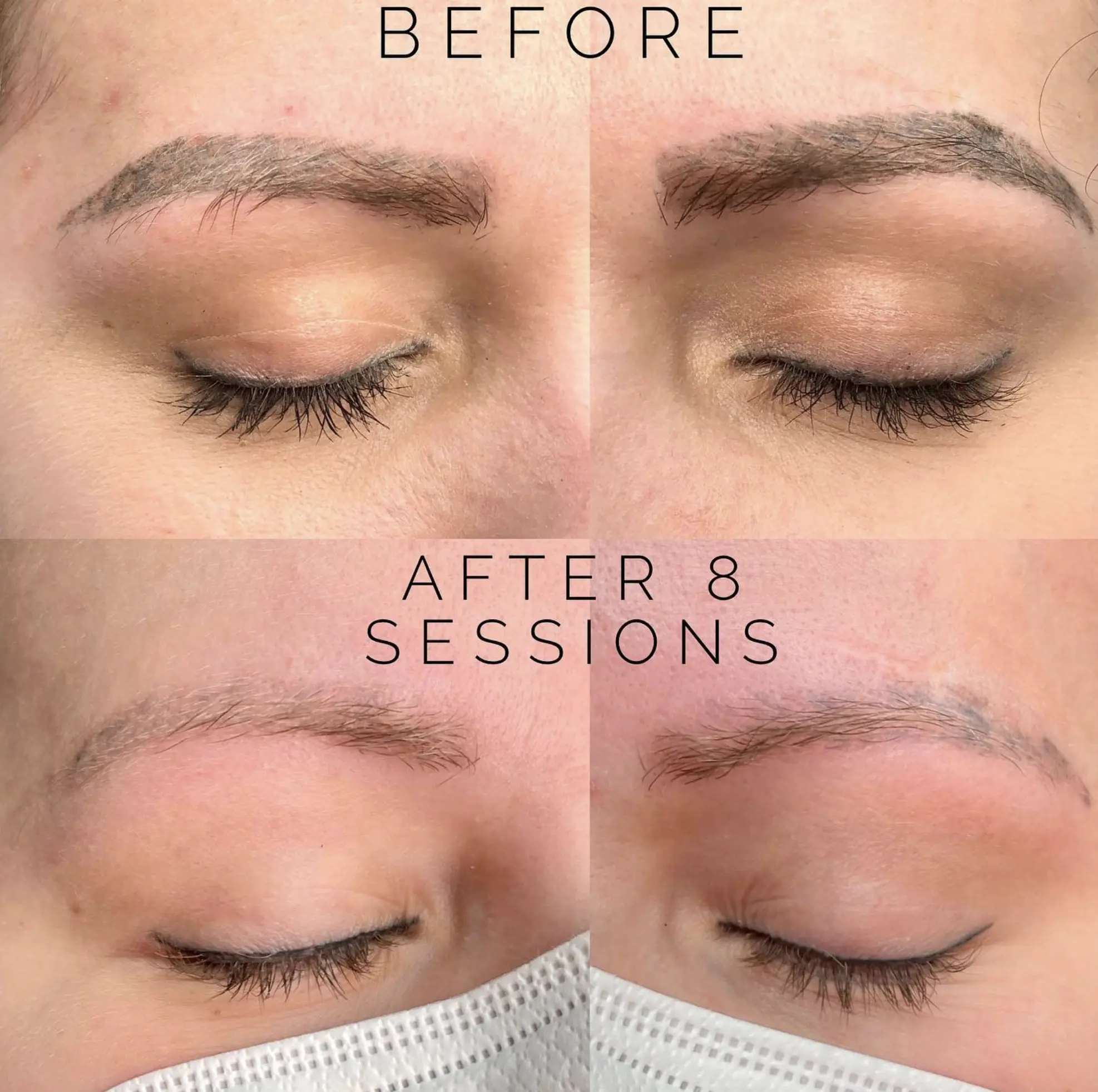
Risks of Removal
Saline tattoo removal like any advanced tattooing technique has its own risks to consider when weighing saline removal vs laser tattoo removal cost:
- Skin Conditions and Skin Diseases
Saline tattoo removal may not be suitable for people with eczema, psoriasis or other active skin diseases. Instead, individuals may look for tattoo laser removal Melbourne specialists who cater to sensitive skin. - Risk of Infection
Poor aftercare can lead to bacterial infections or fungal infections. Those looking for tattoo removal near me should look for clinics that emphasize proper aftercare and hygiene. - Excessive Scar Tissue or Keloid Scars
Saline removal may cause scarring in people who are prone to keloids. Research laser tattoo removal cost and consult with professionals about the best option for your tattoo.
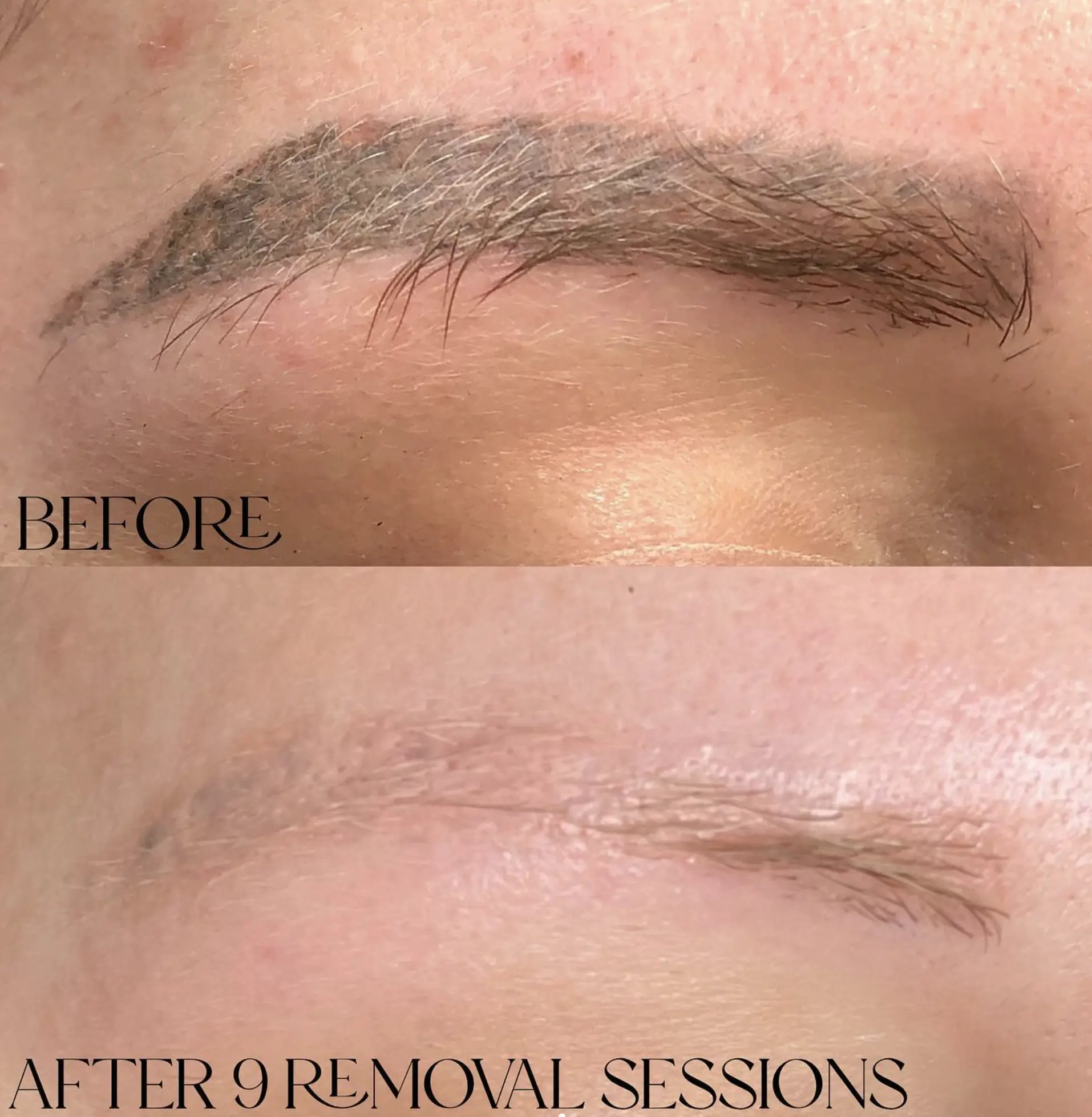
Steps to Minimize Risks
If you’re worried about the effects of saline tattoo removal on your immune system, do:
- Consult Your Doctor: Talk to a doctor especially if you have a history of autoimmune conditions.
- Choose a Reputable Specialist: Make sure the technician is trained and uses sterile equipment.
- Follow Aftercare: Aftercare minimizes infection and inflammation.
- Watch Out For: Any unusual symptoms.
Alternatives to Consider
If you’re worried about saline tattoo removal, here are other options to consider:
- Laser Tattoo Removal: Uses light energy to break down ink but not for all skin types.
- Dermabrasion: Exfoliates layers of skin, more invasive.
- Tattoo Cover-ups: An artistic approach that avoids medical procedures altogether.
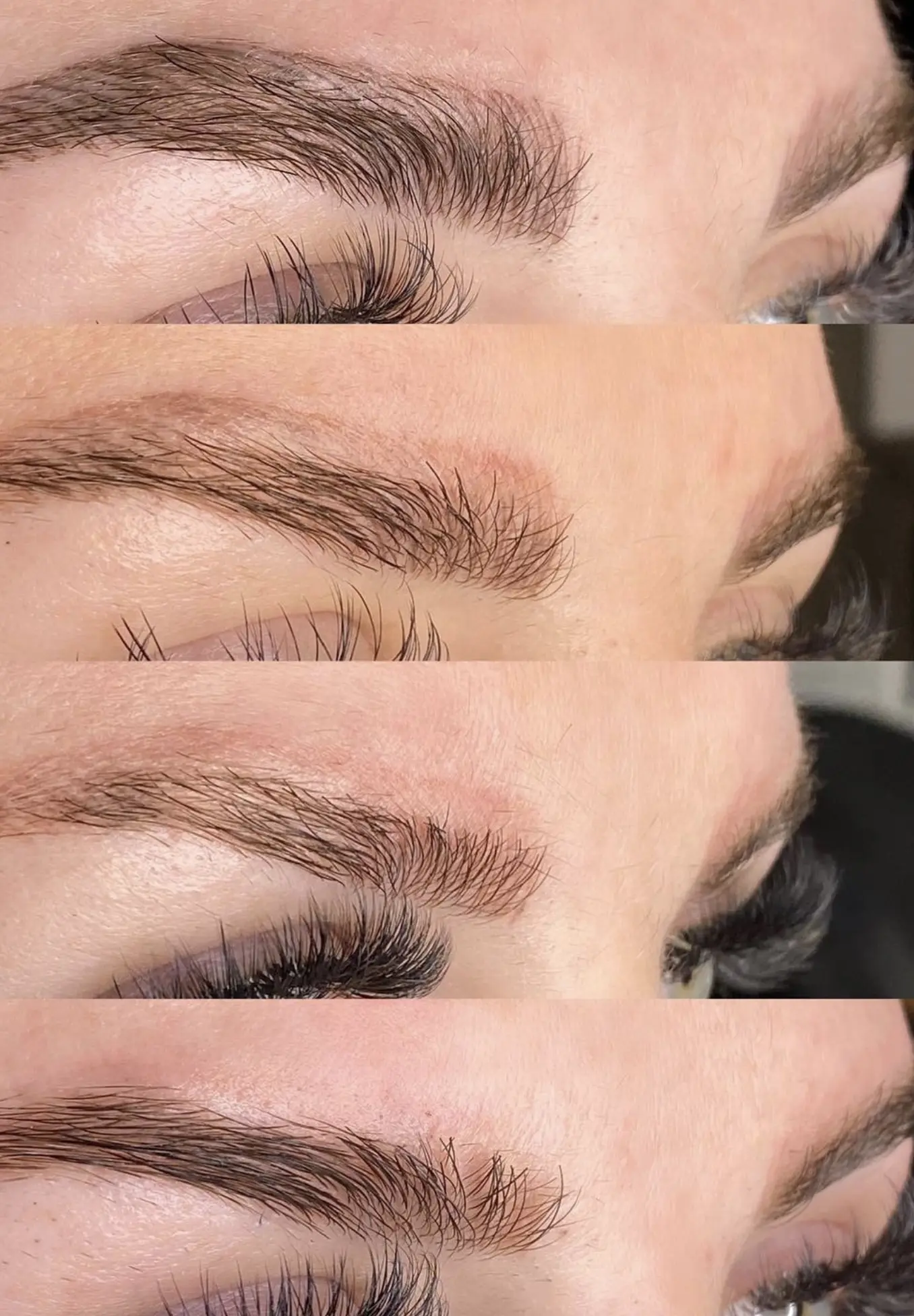
Conclusion
Saline tattoo removal is generally safe for most people looking to remove unwanted tattoos but you should consider your individual health. There’s no evidence that saline tattoo removal can trigger autoimmune diseases but if you have autoimmune conditions or skin diseases you should be cautious. Consult with a doctor before and after the procedure and follow proper aftercare to minimize risks. If you have concerns about adverse reactions, skin conditions or healing process, always best to talk to a professional who knows your skin.
FAQ
Can saline tattoo removal trigger an autoimmune disease?
No evidence but the inflammatory response may exacerbate symptoms for people with autoimmune conditions.
What are the risks for people with sensitive skin?
Sensitive skin or eczema may experience irritation, allergic reactions or complications with wound healing.
How to prevent infection?
Follow aftercare instructions, apply healing creams and don’t expose the treated area to chemicals or excessive moisture to minimize infection.
What are the signs of an allergic reaction?
Swelling, redness, itching or blistering around the treated area. If persists or gets worse, see a doctor.
Can saline tattoo removal work on darker skin tones?
Yes, saline tattoo removal can work on darker skin tones but results may vary depending on skin sensitivity and ink characteristics. Follow aftercare instructions for best results.

